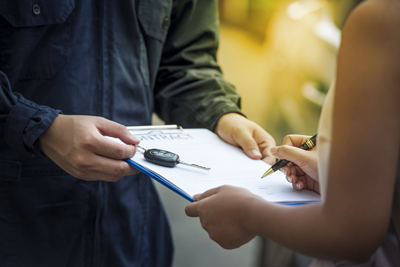A recent survey indicates showing concern for customers' situation at the beginning of the repair process and keeping them informed go a long way.
In 2023, the average time for auto repairs has reached a staggering 23.1 days, a significant increase of 6.2 days from the previous year and more than double the duration in 2021, according to the J.D. Power 2023 U.S. Auto Claims Satisfaction Study.
Surprisingly, despite the prolonged repair cycles and lingering parts shortages, customer satisfaction with the auto insurance claims process has improved this year, reaching an overall score of 878 on a 1,000-point scale. The study credits this boost in satisfaction to insurers' efforts to manage customer expectations and improve digital communication.
“It’s really a testament to strong client management processes and improved digital communications,” said Mark Garrett, director of global insurance intelligence at J.D. Power. “Insurers have been able to earn significantly higher auto claim satisfaction scores at a time when costs and rates are rising---even though it’s never taken longer to get a vehicle repaired. Notable, too, is that insurers that have improved the most in overall satisfaction have done so in two key customer areas: showing concern for their situation at the beginning of the process and keeping them informed. Being empathetic toward the customer situation goes a long way in building trust with them.”
Key Findings
Overall Satisfaction Improves: The overall satisfaction with the auto insurance claims process has increased by 5 points to 878 on a 1,000-point scale. This improvement can be attributed to enhancements in various aspects of the claims experience, including settlement, first notice of loss (FNOL), claim servicing, estimation process and repair process. The only factor that declined this year is rental experience, which fell by 2 points.
Record Repair Cycle Times: Despite the improved overall satisfaction, the time it takes for vehicles to be repaired has never been longer. The average repair cycle time from FNOL to returning the vehicle to the claimant now stands at 23.1 days, marking a significant increase of 6.2 days compared to 2022 levels. Before the pandemic, the average cycle time was only 12 days.
Impact on Rental Car Satisfaction: The prolonged repair cycles have adversely affected rental car satisfaction. An increasing percentage of customers report their rental period is not long enough or they are incurring out-of-pocket expenses, resulting in a 32-point drop in overall rental satisfaction for repairable claims when the car is needed for 15 days or more.
Alignment with Customer Preferences: The study highlights the importance of aligning processes with customer preferences. Digital interactions have contributed to increased satisfaction, particularly among those who prefer digital channels. However, satisfaction declines among customers who prefer more personal interactions but are directed to digital processes. Aligning processes to preferences is key, as customers increasingly want personal interactions, resulting in increased satisfaction.
Digital FNOL Usage: The study found nearly one-fourth (24%) of auto claimants are using digital FNOL methods to report a claim, with 13% using an insurer's mobile app and 10% using the insurer's website.
In terms of rankings, Amica Mutual secured the highest overall customer satisfaction for a second consecutive year with a score of 909, followed by Erie Insurance at 902 and NJM Insurance Co. at 900.
As auto insurance repair times continue to climb, this study underscores the importance of effective customer management and digital communication in maintaining high levels of customer satisfaction. Customers can benefit from exploring digital channels for reporting claims, while insurers must continue to refine their processes to align with customer preferences.














